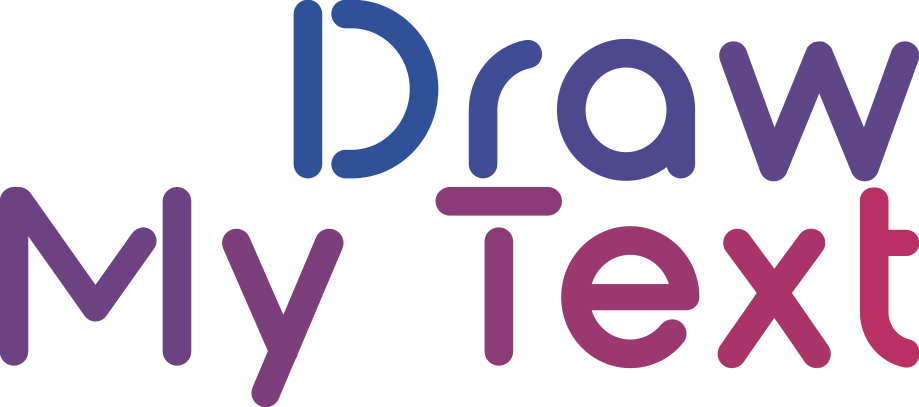
Generative AI: Transforming Customer Experiences in Real-Time
January 4, 2024
Understanding the Power of Interactive AI and Generative Models in Design
January 5, 2024Hello there! 😊 If you’re intrigued by the ever-evolving world of artificial intelligence, then you’re certainly in the right place. Today, we’re going to dive deep into a topic that’s gaining tremendous traction: the ethical implications of generative AI. It’s a fascinating, albeit complex, field that keeps data scientists, tech enthusiasts, and ethicists on their toes. So, grab a comfy seat, and let’s unravel the nuances together!
Generative AI, which encompasses technologies like machine learning and deep learning, has seen remarkable advancements in recent years. This growth, though impressive, isn’t without its share of concerns. From philosophical debates to legal quagmires, generative AI brings forth a myriad of ethical questions that demand our attention.
In this article, as both a scientific content writer and an SEO specialist, I’ll guide you through these intricacies in a reader-friendly manner. Let’s embark on this journey, exploring the peaks and pitfalls of ethical AI deployment. Hang tight—it’s going to be a thrilling ride!
Navigating Ethical Dilemmas in Generative AI Development
Discussing ethical implications of generative AI isn’t just about the tech itself, but also about the consequences it has on society. Picture a scenario where an AI creates highly realistic images or text. The initial awe might quickly be overshadowed by the specter of deepfakes or AI-generated fake news. These issues highlight the ‘minefield’ we find ourselves in, where each step must be taken with great caution.
One of the primary concerns with generative AI is bias and fairness. AI systems are only as good as the data they’re trained on, and if this data contains biases, the AI inadvertently perpetuates them. This not only reinforces existing prejudices but could also have legal implications.
Moreover, there’s the aspect of intellectual property and authorship. With AI now capable of producing original content, who holds the rights to AI-generated works? Is it the creator of the AI, the user, or the AI itself? These are just a few threads in the intricate tapestry of generative AI ethics that we’ll continue to explore.
Challenges in Generative AI Development
Developing generative AI involves navigating a labyrinth of technical and ethical challenges. While advances in machine learning and deep learning have empowered AI to generate startlingly lifelike content, this also presents significant ethical concerns. For instance, ensuring the privacy and security of data used to train generative models is paramount.
Another profound challenge lies in setting regulatory standards. There’s a delicate balance between fostering innovation and regulating technology to prevent misuse. Governments and institutions worldwide are grappling with this balance, as seen through various AI regulatory proposals.
Furthermore, as AI becomes more autonomous, accountability becomes blurrier. When an AI system makes a decision, it can be difficult to trace how it arrived at that point. This ‘black box’ issue is a major hurdle in understanding and controlling the outputs of generative AI models, emphasizing the need for transparency.
Explore the Horizons with DrawMyText
Before we continue, allow me to introduce you to DrawMyText, a premium text-to-image generation platform. Imagine transforming your words into stunning graphics with just a few clicks; this platform makes it achievable. With a user-friendly interface, innovative features, and competitive pricing plans, DrawMyText is an indispensable tool for creatives, marketers, and anyone in between. Why not elevate your projects with this cutting-edge AI solution?
DrawMyText offers a variety of pricing options to suit your needs, ranging from an affordable monthly subscription to a premium annual commitment with additional benefits. Each plan gives you access to a library of styles, the ability to customize images, and priority support from their team. It’s more than a service; it’s an investment in your digital creative prowess.
So, if you’re looking to harness the power of generative AI for your creative endeavors, consider subscribing to DrawMyText. It’s an opportunity to not just witness, but actively participate in the unfolding generative AI revolution.
A Bright Yet Uncertain Future: The Road Ahead for Generative AI
The intersection of technology and ethics is always eventful, and when it comes to generative AI, we’re at a crossroads. As we continue developing more sophisticated AI models, the importance of ethical considerations only grows. It’s a balancing act of promoting innovation while being acutely aware of the potential repercussions.
To move forward responsibly, stakeholders need to engage in collaborative dialogue, bridging gaps between technologists, ethicists, and policymakers. Think tanks and industry leaders must come together to exchange ideas and shape the future of AI. Educational initiatives and public awareness campaigns can play key roles as well, helping everyone understand not just the capabilities, but also the limitations and responsibilities that come with generative AI.
It’s an exciting time to be part of this field, and the opportunities are as vast as the challenges. As long as we navigate this ‘minefield’ with care and conviction, the path ahead can lead to truly transformative outcomes for humanity.
Frequently Asked Questions (FAQs)
What are the ethical issues associated with generative AI?
The ethical issues in generative AI revolve around bias, fairness, privacy, intellectual property rights, and the potential for creating misleading or harmful content. Addressing these concerns requires a multifaceted approach involving technical solutions, policy-making, and ethical guidelines.
Can AI-generated content lead to legal challenges?
Yes, AI-generated content can lead to legal challenges, particularly concerning copyright and intellectual property rights, as well as accountability and transparency in cases where AI-generated decisions or actions have significant consequences.
How can we ensure the ethical use of generative AI?
Ensuring the ethical use of generative AI involves a combination of responsible AI design, transparent algorithms, diverse and unbiased data, continual monitoring of AI behavior, and robust legal frameworks that regulate AI use and development.
Do current laws suffice to regulate generative AI?
Current laws may not fully address the nuances of generative AI. It is an area of active development that requires updated legislation and international cooperation to effectively manage the complexities of emerging technologies.
Should AI be able to own intellectual property?
This is a contentious issue. As of now, AI lacks legal personality and cannot own intellectual property. However, there’s an ongoing debate about whether AI should be awarded copyright for its creations or if it should remain with the developers or users of the AI system.
Keywords and related intents:
Keywords:
1. Ethical implications of generative AI
2. Data scientists
3. Tech enthusiasts
4. Ethicists
5. Machine learning
6. Deep learning
7. Bias and fairness in AI
8. Intellectual property and authorship
9. AI regulatory proposals
10. DrawMyText
Search Intentions:
1. Understand the ethical implications of generative AI.
2. Explore the role of data scientists in addressing AI ethics.
3. Learn about current debates among tech enthusiasts about generative AI.
4. Find discussions by ethicists on AI technology.
5. Investigate recent advancements in machine learning and deep learning.
6. Research the issue of bias and fairness in artificial intelligence systems.
7. Identify the challenges of intellectual property rights in AI-generated content.
8. Review government and institutional AI regulatory proposals.
9. Discover the features and pricing of the DrawMyText platform.
10. Analyze the future outlook and ethical responsibility in generative AI development.
#Challenges in Generative AI Development
#Ethical #Implications #Generative #Navigating #Minefield


